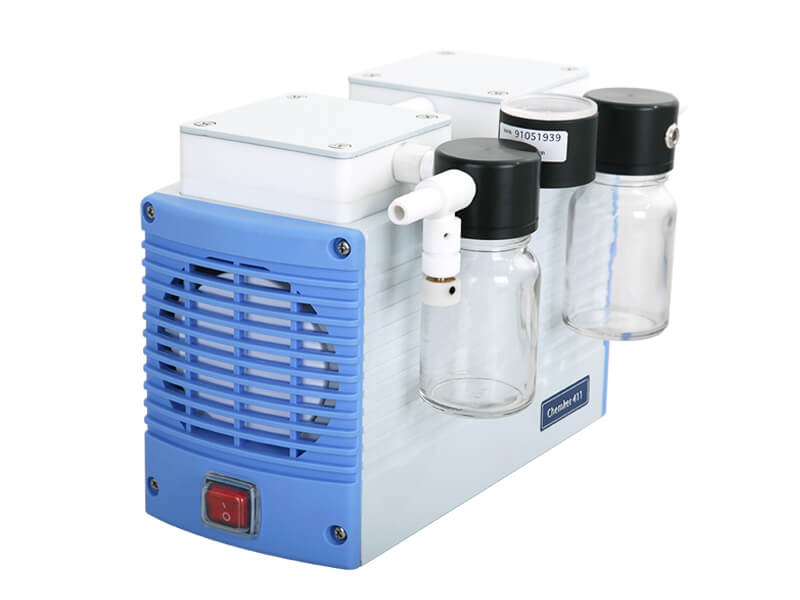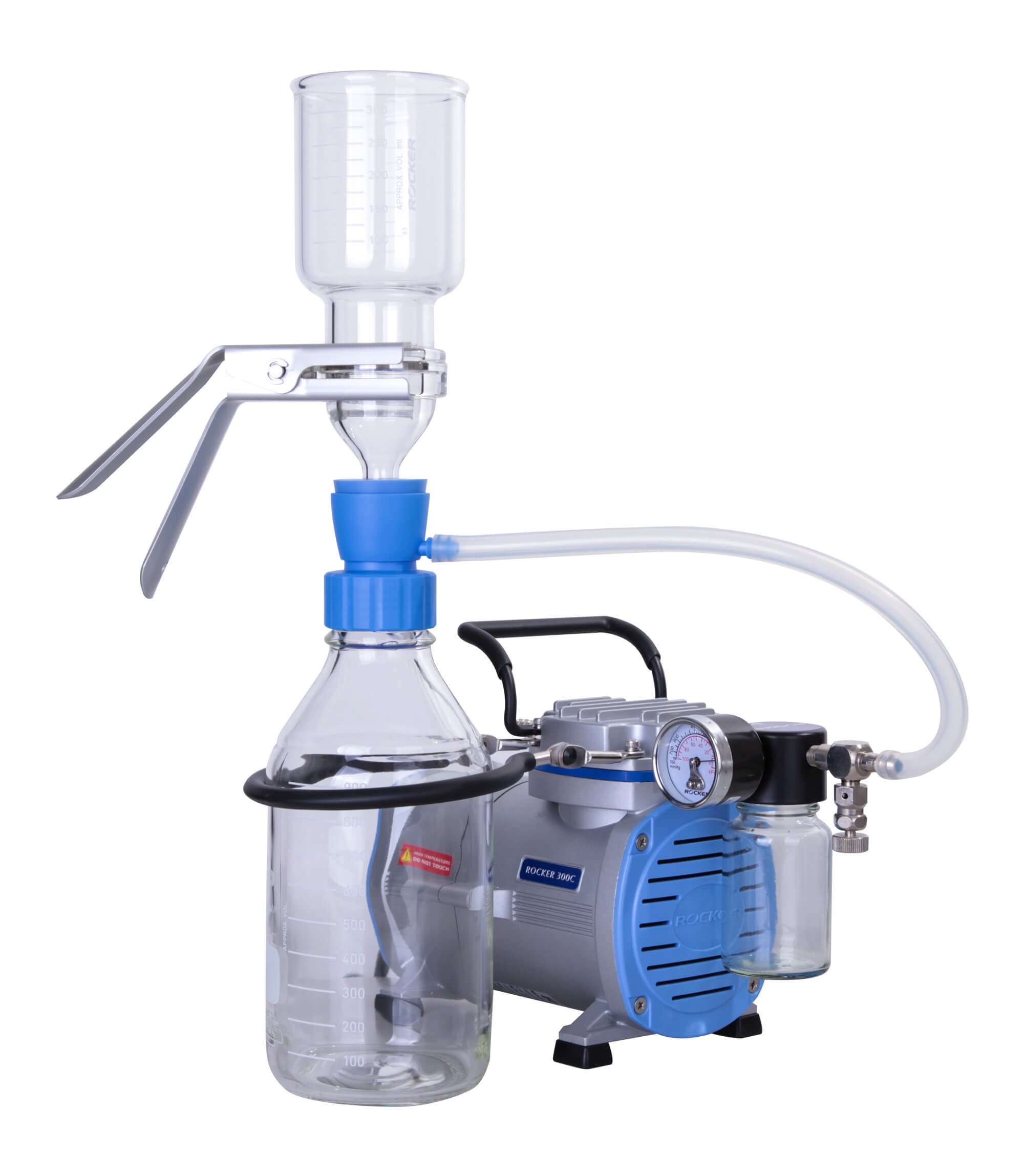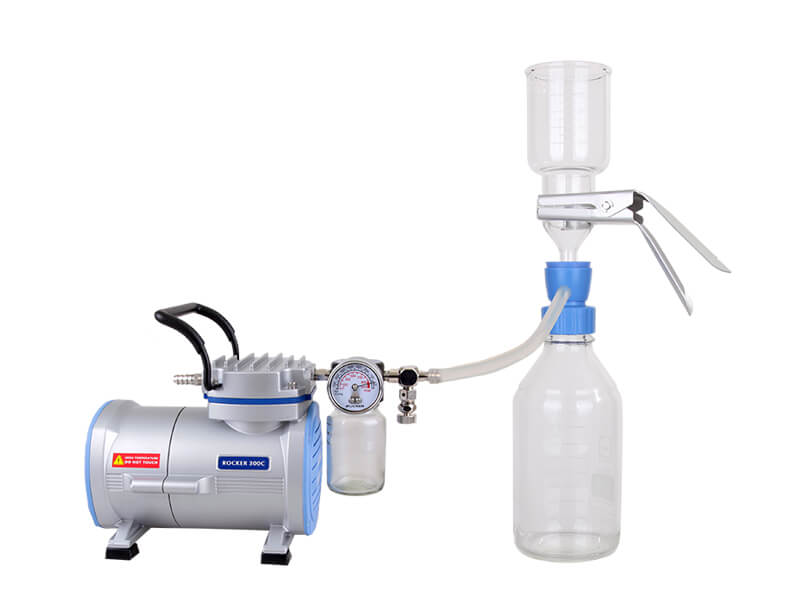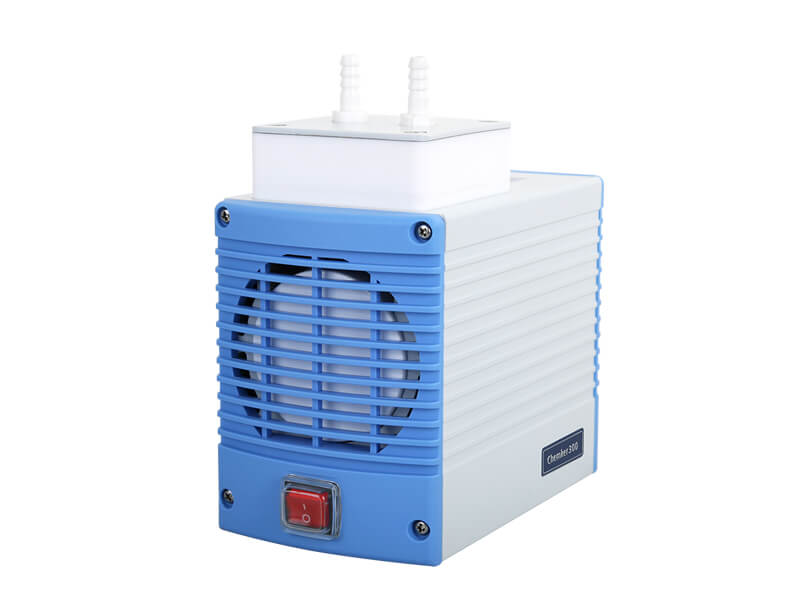Purification of solvents
Solvent purification is a critical topic in laboratory settings, encompassing various techniques and processes aimed at obtaining high-quality solvents for scientific research, synthesis, and analytical applications. This topic holds immense importance due to the significant role solvents play in various fields, including chemistry, biology, and materials science. Purification of solvents removes impurities such as water, oxygen, and contaminants, ensuring their suitability for sensitive experiments and reactions.
By discussing solvent purification, we gain insight into the methods, equipment, and advancements used to achieve high-purity solvents, enhancing experimental reproducibility, accuracy, and safety.
Definition of solvent purification
Most common grades for reagents & solvents
Solvent filtration process
Solvent filtration apparatus and assembly
Solvent purification applications
Definition of solvent purification
Solvent purification involves the removal of unwanted particles or impurities from solvents or reagents through methods such as distillation, recrystallization, or filtration. Solvent filtration, in particular, is a commonly employed technique in the pre-treatment of precise analyses, such as HPLC.
Most common grades for reagents & solvents
Organic solvents are widely used in many laboratory experiments with different purity grades. Below, I have listed the most common grades:
- Guarantee Reagent, GR
- Reagent Grade, RG
- Analar Reagent, AR
- American Chemical Society, ACS
- United States Pharmacopoeia, USP
- Analysis
- Chromatography (HPLC, GC)
Solvent purification is essential for several analyses, including the use of solvents as mobile phases in HPLC (high-performance liquid chromatography) and LC-MS-MS (liquid chromatography-tandem mass spectrometry). The purpose is to prevent impurities from affecting experiment results or affecting the production rate. Vacuum filtration is a common method employed for such purification processes.
Solvent filtration process
Filtration is a solvent purification technique used to remove solid impurities from an organic solution by isolating the solids on membranes. The selection of membranes should consider sample characteristics, removal rate, and filtration time.
There are two common methods of solvent filtration: gravity filtration and vacuum filtration. Vacuum filtration utilizes pressure differences to accelerate the filtration process, making it generally much faster than gravity filtration.
Solvent filtration apparatus and assembly
A solvent filtration kit typically includes the following components: a chemical-resistant vacuum pump, a safety trap, a receiver flask, and a set of filter holders.
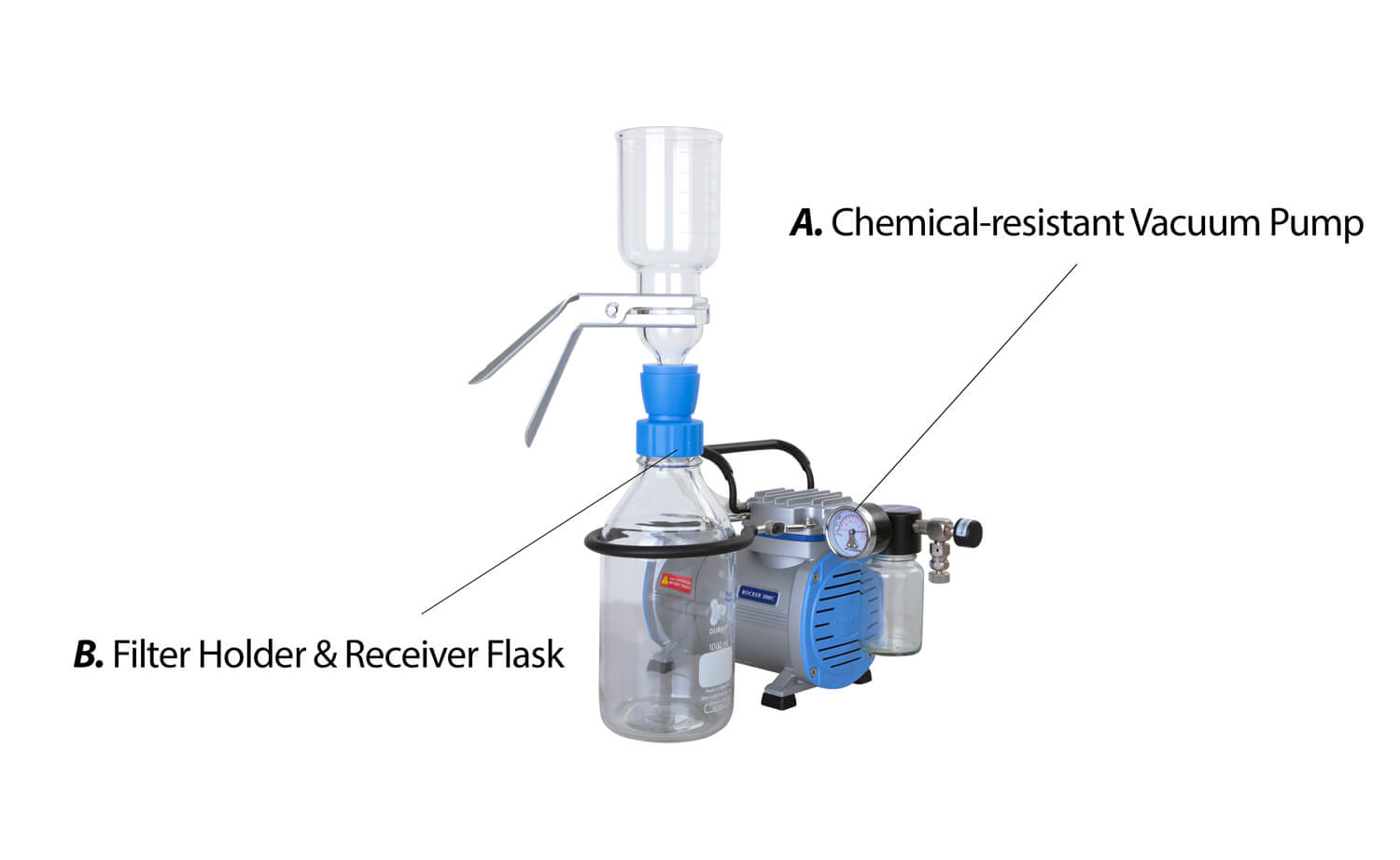
A. Chemical resistant vacuum pump
Most solvents that require purification are organic solvents, acids, and alkaline solutions. Considering the safety of analysts and the resistance of the pumps to corrosive chemicals, it is highly recommended to use chemical-resistant pumps for these applications.
All wetted parts of ROCKER’s chemical-resistant vacuum pump are made of corrosion-resistant materials.
- Chemker Chemical Resistant Vacuum Pump
Made of PTFE, provides high resistance to corrosive and aggressive gases.
- Rocker C PTFE-coated Pump
PTFE-coated, provides moderate resistance to most chemicals including alcohol and alkane.
Chemker Chemical-resistant Pump
B. Receiver flask and filter holder
Borosilicate glass is the recommended material for receiver flasks and filter holders used in solvent filtration to prevent damage caused by organic solvents and corrosive chemicals. The choice of materials for the membrane support can be either fritted glass or stainless steel, depending on specific requirements.
ROCKER’s VF Filtration Apparatus
– Borosilicate glass-made, high resistance to heat and chmicals
– Clear scale marking for precise and easier sample addition
– Optional sintered glass-made or stainless steel-made filter support screen
– Spill-proof silicone base VF3、VF6、VF7
Rocker 300C-VF12 Solvent Purification System
Rocker Discover // Never spill again!!
Rocker Discover // Wow! This receiver flask is multifunctional
Solvent purification applications
- Mobile phase purification for HPLC、LC/MS/MS analysis.
for example, Acetonitrile, methanol, and tetrahydrofuran.
References:
The Seven Most Common Grades for Chemicals and Reagents | Lab Manager
Purity and Grading (advtechind.com)
Difference Between Filtration and Purification

